
3 minute read
protect | Restore | Nurture
Protecting existing natural spaces is an important step in protecting nature forever. Every nature reserve is a win for nature and a win for all beings in nature.
Boview Farm is 35.5 ha of forest, grassland, wetlands, floodplain, and active farmland in Middlesex Centre. Mary and Paul Harding donated their former home to continue their conservation efforts and legacy. Over 60 trees, 32 birds, and 26 fish species have been recorded. The Harding’s conservation commitment, reflected in historical tree-planting, left a great mark TTLT looks forward to continuing.
Advertisement
Next Steps
Karen and Eric Auzins donated this 20.8-ha nature reserve with both wetlands and woodlands, including a floodplain swamp along the Dingman Creek. The wetlands are within a candidate London Environmentally Significant Area. A segment of the wildlife corridor along Dingman Creek, which provides habitat for over 50 species of fish and mussels, the floodplain and upland forests protect water quality and provide habitat for diverse plants and animals.
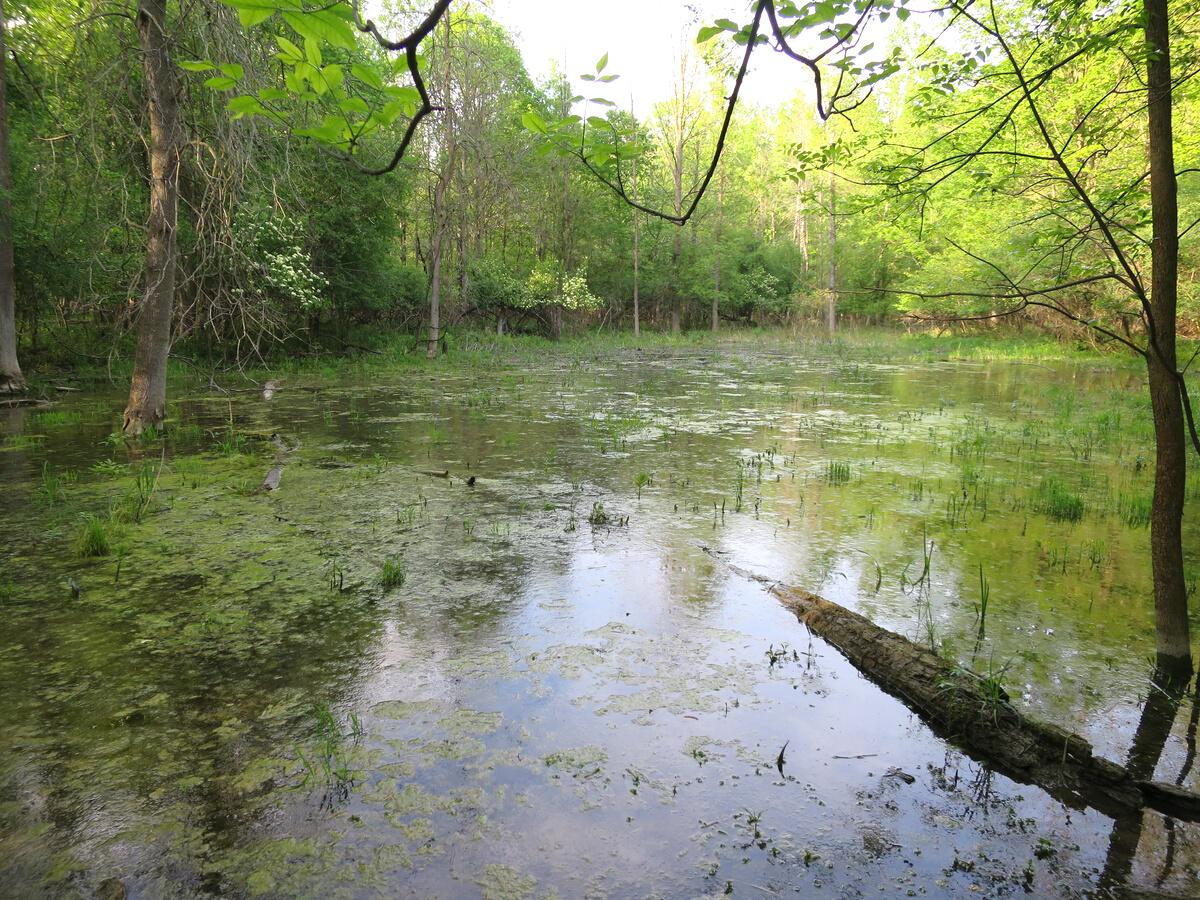
Deer Haven is an incredible 19.4 ha reserve with mature forests, prairie and early successional woodland. Heather and Peter Scott restored the former farm over 25 years, installing a tall grass prairie, wetlands to support amphibians, and native tree planting. Containing a tributary of the Thames River with critical habitat for species at risk fish and mussels, the varied habitats and proximity to the Thames River makes this a key long-term sustainability and biodiversity site.
Secure Ridgeview Wetlands plus additional projects, explore more efficient ways to protect land faster, explore innovative partnerships to protect nature.
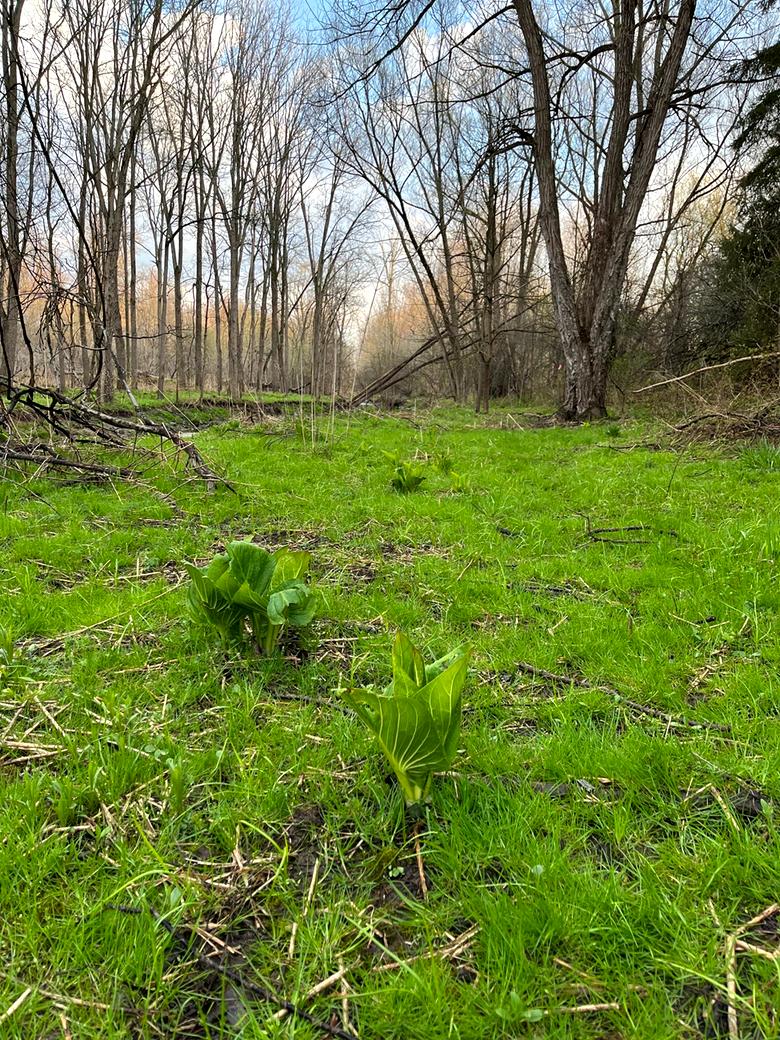
We must care for the land so that it can care for all living beings. Our focus is on restoring and/or maintaining healthy habitats for all species to flourish.
Species at Risk
We helped to rescue 74 eggs from 9 turtle nests through our Turtle Monitoring program. We started a snake monitoring program to help fill the gaps in collective species data.

Restoration
We managed 6+ non-native species on at least 14 nature reserves, collected seeds from at least 10 native plant species, created 2 new wetlands, and cleaned up garbage at Sitler Woods.
Projects
We completed trail upgrades at 5 trails, including 2 boardwalks at Five Points Forest - Driedger Tract. We opened 2 new trails. We updated signage at both Community Wildflower Gardens, which resulted in a partnership with Elgin County Library and St. Thomas Public Library. We also completed management plans for 5 nature reserves.
Next Steps
A garbage cleanup at Ross's Woods, controlling non-native plants in 9 Provincially Significant Wetlands, continuing the turtle and snake monitoring programs, completing maintenance upgrades on at least 2 nature reserves.
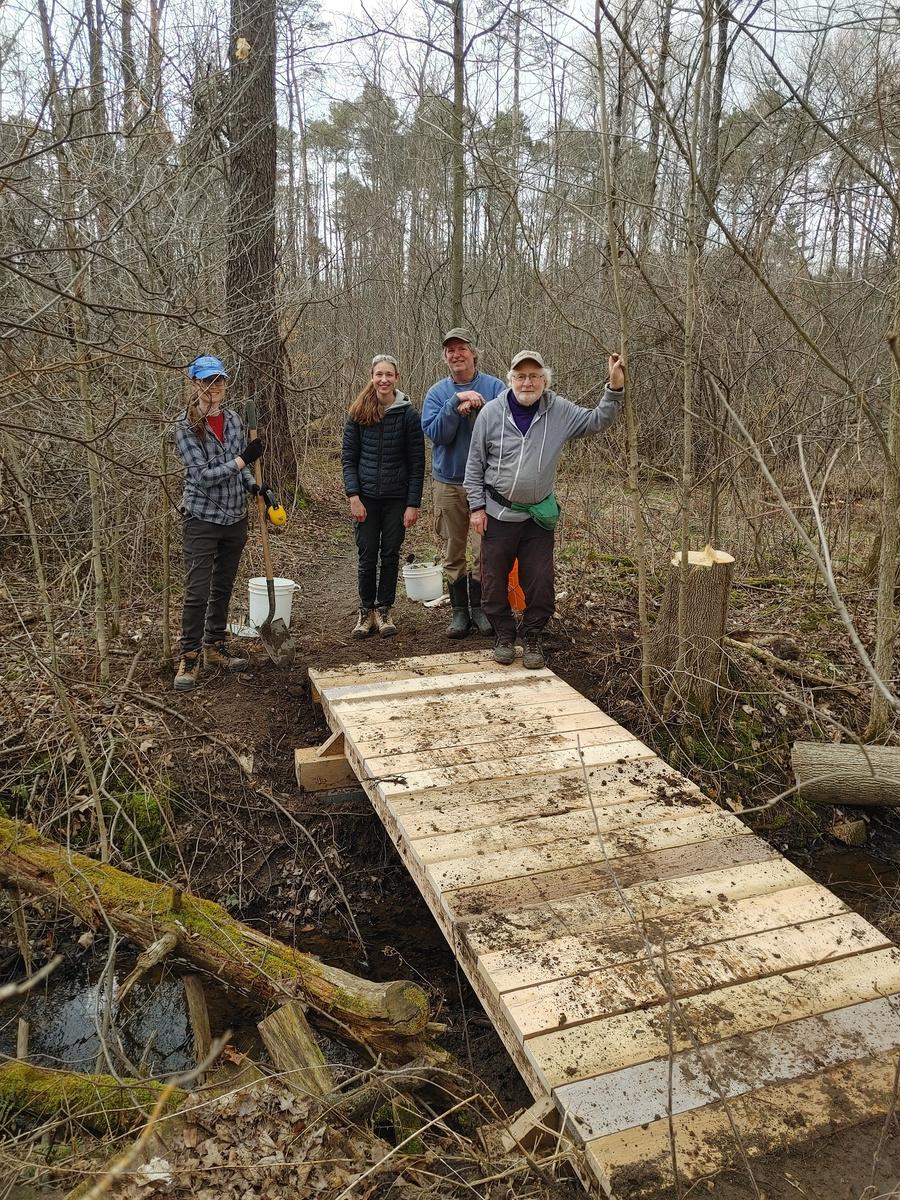
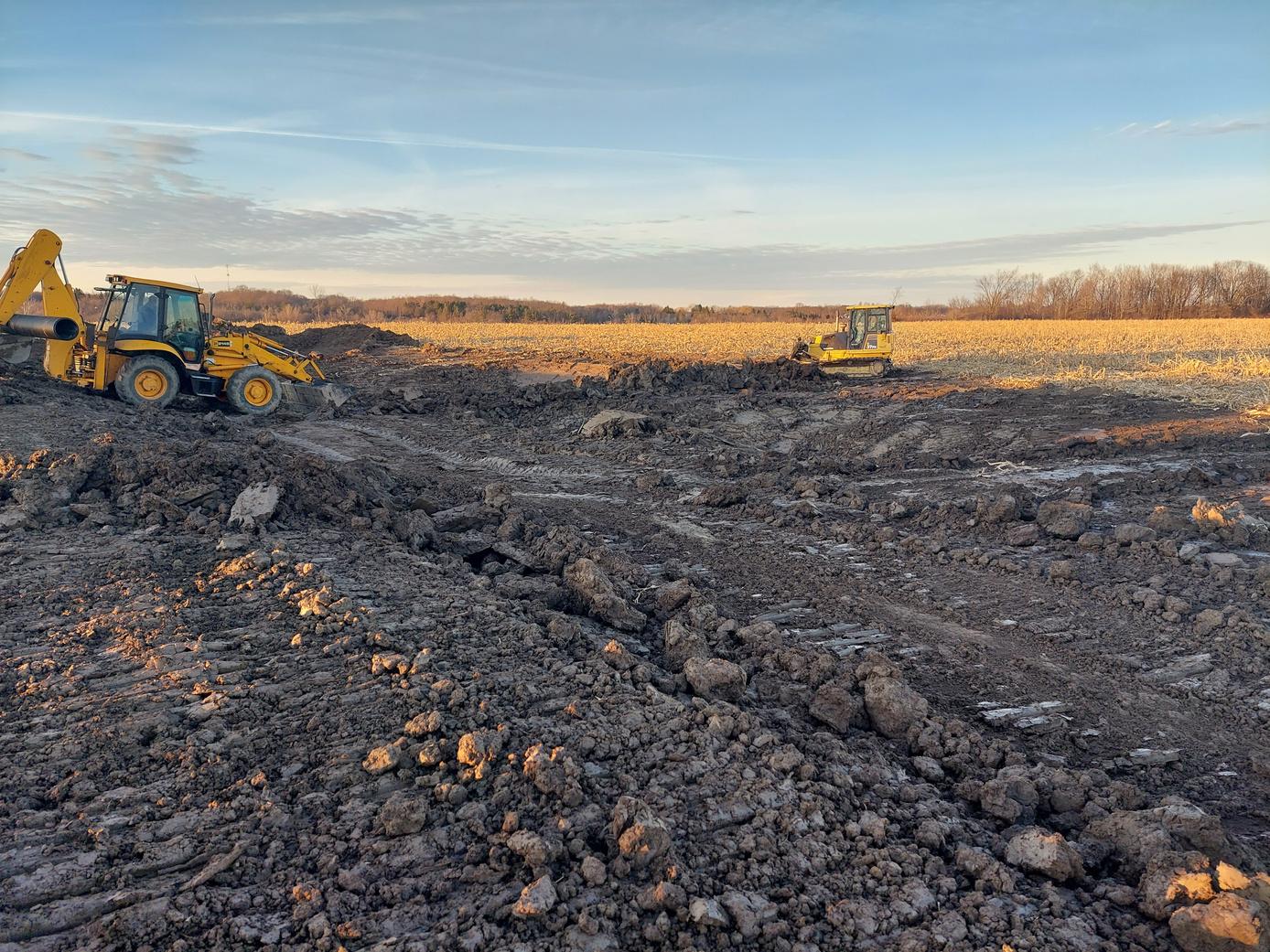
Nature is a major part of who we are and nurturing that connection is an important part to our overall wellbeing. We strive to provide a variety of opportunities for people to connect and re-connect with nature, and also for us to connect with our supporters.
Programs
The continuation of Diversifying Conservation resulted in 5 events with 100 participants and 3 new community partnerships. We hosted 13 Passport to Nature events with 230+ participants. We reached 200+ students across 6 schools through Nature Education for Youth programming. We also successfully piloted a School BioBlitz for grade 7/8's with 6 classes in the Thames Valley District School Board.
Outreach
We participated in 10 community outreach opportunities, hosted 12 events outside of outreach programs with 850+ participants. We also saw an increase of 150 people to our email list.

Volunteers
We provided 30+ volunteer opportunities, which attracted 140+ volunteers and resulted in 630+ volunteer hours. We also launched our office and outreach volunteer programs and recruited 55+ volunteers to all volunteer programs.
Next Steps
Incorporate Diversifying Conservation learnings into all events/programs, improve existing programs and events, continue to build volunteer programs, and recruit more volunteers.
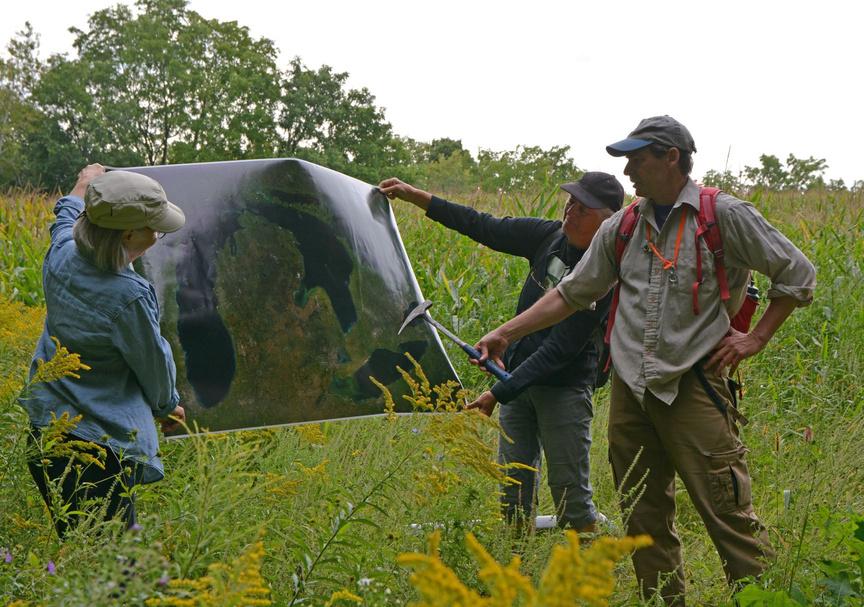
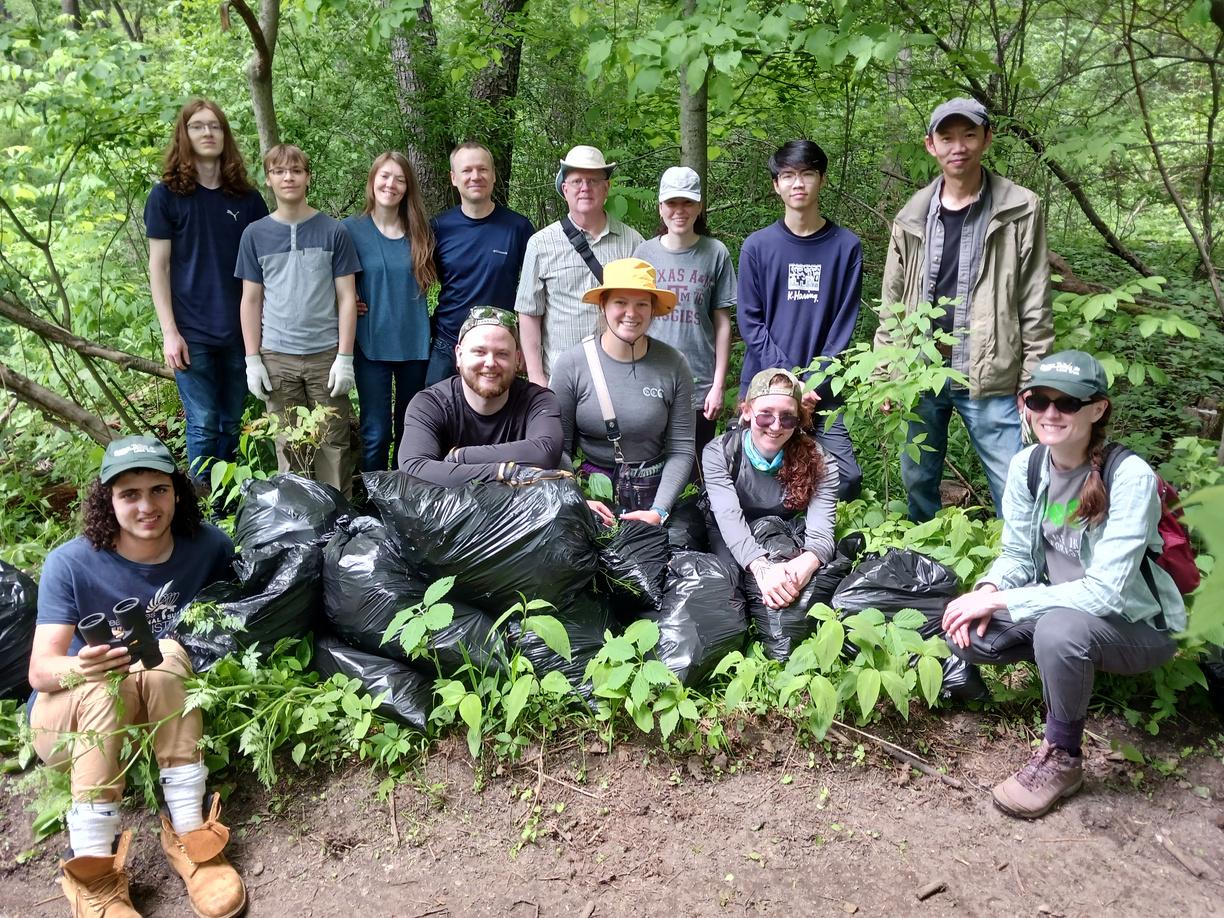
2022 has been an extremely successful year for TTLT. Net revenue exceeded $3M with almost $2.8M of donated land. Staff were extremely proficient with grant applications with just under $480,000 recorded as revenue, the highest since 2016. Other than property acquisition and LCF contributions, expenses are consistent with 2021. TTLT is managing more acres every year with a minimal increase in costs. One parcel of donated land included a house which represents a new asset category for TTLT. This house is now a source of rental income for TTLT.


